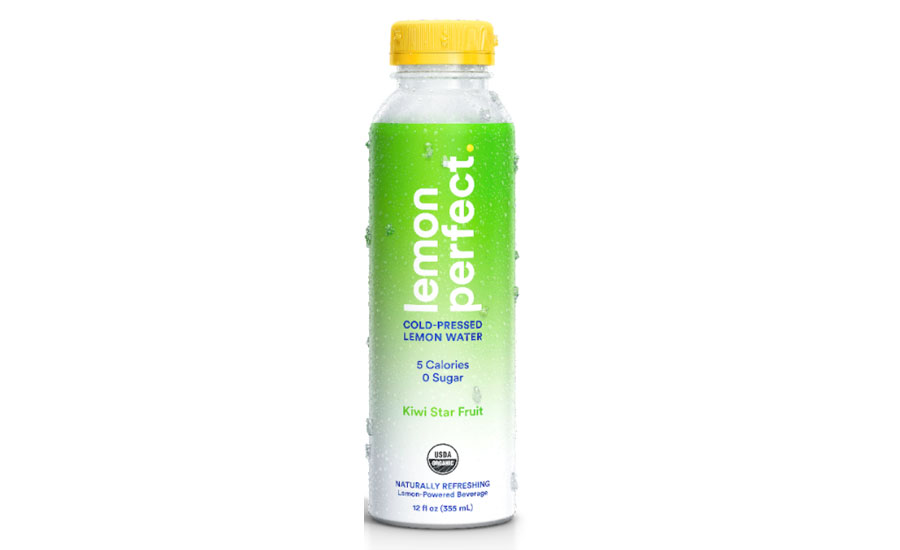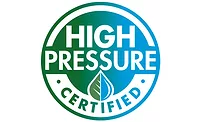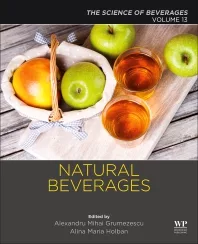R&D Feature
Consumer awareness of clean label drives demand for ingredient solutions
Suppliers for sweeteners, colors and more develop solutions to support clean label trends

When it comes to health and wellness, consumers are at no loss for motivators. With the onset of the pandemic, consumers found a new motivator to prioritize their health as well as the ingredients that support those healthy goals.
“Consumers are more interested than ever before in products with clean labels because they signify a product that will not only enhance their health but is also better for the planet,” says Alice Lee, technical marketing manager for GNT USA LLC, Tarrytown, N.Y. “Clean and mindful eating became especially important during the pandemic because it was a way for consumers to eat foods that were more natural and nutritious. The popularity of clean labels will continue to grow in the years to come as consumers place a greater priority on products that contain recognizable ingredients that are processed simply using familiar methods that they would use in their own kitchens.”
Lee adds that a 2021 FMCG Gurus USA Clean Labels Survey found that 83% of consumers reported liking seeing “100% natural” on a label while 67% noted they prefer products that are minimally processed.
Carla Saunders, senior marketing manager of high intensity sweeteners at Minneapolis-based Cargill, notes that consumers’ demands for clean label products stems from the health perceptions around the ingredients.
“Research from the International Food Information Council finds that among those who seek out foods and beverages made with ‘clean’ ingredients, health is the overriding consideration. A quarter of respondents see ‘clean’ ingredients as a shortcut to health benefits, others say they are avoiding possible harmful effects from chemical-sounding ingredients (21%) or unfamiliar ingredients (18%), while 17% view them as more nutritious,” she explains, citing a June 2021 International Food Information Council’s insights titled “From ‘chemical-sounding to clean’: Consumer perspectives on food ingredients.”

Image courtesy of Lemon Perfect
Julie Gattaz, senior strategic marketing manager of beverages with Kerry Taste & Nutrition,
Beloit, Wis., adds that consumers have become more aware of clean label, based on a recent study conducted by Kerry in the United States.
“Eight-two percent of consumers believe clean label is important, and almost as many are willing to pay more for products they perceive to be healthier or cleaner,” she says. “Foodservice operators are also gaining awareness of clean label with 45% of operators willing to pay a premium price for clean label products. However, clean label is about more than ingredients and claims. Our Kerry research shows that consumers expect better ingredients as well as safe, nutritious, and eco-friendly products.
“Our research also found that 75% of consumers indicated they evaluate ingredients on packages, while 66% look at the nutritional panel,” she continues. “To consumers, clean label represents a ‘good food future’ with ingredients that are believed to be healthy, nutritious and sustainable. This represents an opportunity for companies who can offer consumers clear information about what clean label is and align their products and practices with the demand for healthier, nutritious ingredients, and for sustainability.”
Embracing a clean directive
With consumer interest in clean label food and beverages on the rise, suppliers note that beverage-makers are taking a proactive approach to utilizing a range of ingredients that support those goals.
“Consumer demand for label-friendly formulation has brands actively pushing ingredient suppliers to innovate,” Cargill’s Saunders says. “At Cargill, we are responding. Within our portfolio, we have ingredients like pea protein, stevia, pectin and new this year, soluble rice flour ― all ingredients that can meet manufacturer’s functional demands for beverage ingredients while also delivering on the clean-label promise.”
For instance, brands that are looking to keep artificial ingredients off ingredient statements are turning to solutions like stevia. Saunders adds that stevia has made gains over the years with consumers as they have become more familiar with the zero-calorie, paving the way for more label-friendly, reduced-sugar beverages.
“Our ViaTech stevia leaf extract portfolio is designed to deliver significant improvements in sweetness quality compared to traditional stevia leaf extracts, providing more versatility in reformulation,” Saunders explains. “We developed a proprietary taste prediction model, which enables us to identify the best ratio of steviol glycosides for the unique flavor dynamics of specific applications. The portfolio includes options tailored for specific applications, including dairy, tea and juice. ViaTech’s improved sweetness and flavor dynamics allow for sugar reductions of up to 70% in a wide range of applications.”
GNT USA’s Lee also notes that beverage manufacturers are looking to avoid artificial ingredients when developing functional new products.
“Beverage-makers are more focused than ever on creating products that meet the consumer demand for beverages that are healthful and functional. New product launches in the beverage space promote functional ingredients that today’s savvy consumers connect to healthful attributes,” Lee says. “The 2021 FMCG Gurus USA Clean Labels Survey found that 58% of consumers are concerned with artificial ingredient information on beverage labels disguised by complex labeling, which is why manufacturers turn to clean labels to convey transparency and authenticity. They also rely upon color to provide flavor and nutritional cues that signal to the consumer a healthful beverage that they can trust.”
To support clean-label demands for color, GNT USA offers colors made from fruits, vegetables and edible plants.
“EXBERRY Coloring Foods are the ideal choice for beverage manufacturers who want to create visually impactful products that are consumer-friendly with clean label declarations,” Lee explains. “We offer a brilliant rainbow of radiantly vivid colors made from edible fruits, vegetables and plants, giving manufacturers the opportunity to create on-trend, aesthetically stunning finished products that remain stable throughout their shelf life.
“Our EXBERRY colors are created using a physical, water-based method such as chopping, filtering, boiling, and pressing, without the use of any chemical solvents,” she continues. “Our vegan, non-GMO ingredients have full raw material traceability, and are also halal and kosher-friendly. By ticking all of these boxes, beverage manufacturers can be confident that our colors meet the demands of today’s most discerning consumers.”
Kerry Taste & Nutrition’s Gattaz adds that as clean label has risen in demand, beverage manufacturers might have lists of “no-no” ingredients to avoid. To ensure that formulators still can deliver the refreshment and functional needs for clean label beverages, the company offers a wide portfolio of solutions to support clean label trends.
“Citrapure is a clean label, taste-led innovation that benefits beverages, locking in great taste with complementary natural flavors,” Gattaz says. “SimplyNature is our platform of clean label natural flavors and extracts, offering potential claims for organic and non-GMO. Simply Nature brings together our worldwide network of farmers, growers, researchers and scientists whose deep, expert knowledge allows us to deliver the taste of nature from the most possible sustainable sources to your consumers.”
As protein (plant and animal based) also see demand increases, Kerry Taste & Nutrition also has prioritized clean label solutions for these beverage trends.
“Kerry offers a wide range of healthy, nutritional and functional proteins that are Non-GMO Project Verified: Ultranor, specialty dairy proteins; ProDiem, plant proteins; ProDiem Refresh, plant protein hydrolysates for clear beverages; and Hypro, protein hydrolysates,” she says. “Our dairy proteins also offer Kerry grass-fed proteins and research has shown that use of the ‘grass-fed’ claim has grown 34% since 2015.”
Clear communications
Although consumer interest in clean-label beverages remains popular, experts note that awareness is not the same as understanding.
“Clean label isn’t a one-size-fits-all strategy. There are certain categories that consumers view as an indulgence and clean label is less of a consideration,” Cargill’s Saunders explains. “For other categories, however, clean-label ingredients are a cost-of-entry. Consumers don’t have the same expectations for carbonated soft drinks as they do for a nutritional supplement beverage. Brands need to recognize those differences, specific to the category and the consumer segment target.
“We also see differences in how ingredients are perceived by different consumer segments,” she continues. “For example, our research finds true ‘clean-label shoppers’ are more knowledgeable about ingredients. So while the general population may be less aware of an ingredient like erythritol, clean-label seekers tend to be familiar with erythritol, understand its benefits and be receptive to having the ingredient on a beverage label.”
Given this, Saunders notes that beverage-makers shouldn’t feel pressured to make every product clean label but instead evaluate the segment and its needs.
Yet, for those wanting to support clean label needs, claims can play an important role, experts note.
“On-pack claims and certifications play an important role in communicating with consumers,” Kerry Taste & Nutrition’s Gattaz says. “Our research revealed the most powerful claims that resonate with the clean label consumer focus around simpler, more natural ingredients, sources and processes. While ‘all-natural/100% natural’ continued to be the strongest indicator, ‘non-GMO,’ ‘no additives/preservatives,’ ‘organic,’ and ‘made with real ingredients’ boosted a product’s clean position for consumers.
“Our research has found that 61% of foodservice operators seek out at least one claim from the products they purchase,” she continues. “The most sought-after claims by operators are trans-fat free, all-natural, locally produced/grown, and no artificial ingredients.”
Whichever path beverage-makers select in their clean label/non-GMO journey, suppliers suspect we will continue to see a proliferation of products that fit those attributes.
“The future demand for clean labels is certain to grow in the years to come as modern consumers become more mindful of ingredients and the methods used to process them,” GNT USA’s Lee says. “According to the June, 2021 Food Ingredient LSI Survey, 62% of consumers believe that a label ingredient list is more important than other sources of product information such as social media, websites or QR Codes. Clean labels enable beverage manufacturers to establish trust and instill loyalty in consumers that positively affects their bottom line.”
Looking for a reprint of this article?
From high-res PDFs to custom plaques, order your copy today!









